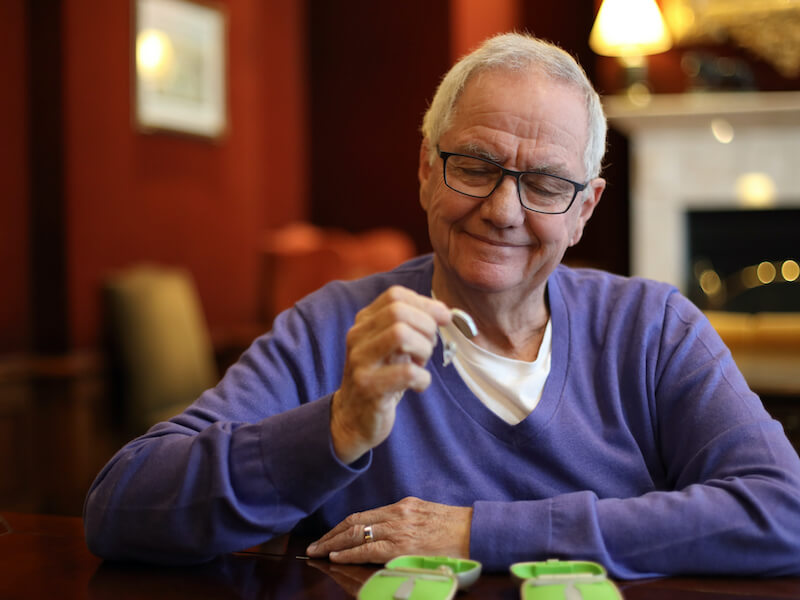
You finally obtained your new hearing aids. You’re finally going to be able to get back into the groove of your social life again. No more missed transitions or confused conversations. But there’s a problem: everything sounds just a little off.
The reason for this is that it will normally take a bit of time before you get used to your new hearing aids. Often, this transition can be annoying. After all, there was so much you were excited to do, and that adjustment period just feels so slow.
But there are a few tips you can use to reduce this transition period. Pretty soon, with a bit of practice, you will be focusing on what you’re hearing rather than your hearing aids.
Start slowly with these tips
Your brain will take a little while to get used to hearing certain sounds again regardless of how sophisticated your hearing aids are. Here are a few ways you can deliberately give yourself time to adjust and take it slowly:
- Only use your hearing aids for short amounts of time to begin with: A few hours at a time is the most you should wear your hearing aids when you first start out. They may feel a little uncomfortable at first (this is normal), so it’s good to start a little bit at a time. As your hearing aids get more comfortable, you can use them for longer durations.
- Use your hearing aids only around the house at first: When you’re at home, you have a lot more control over what you’re hearing, and you’ll probably experience substantially less noise pollution. This means you can concentrate on one voice at a time.
- Initially, try to pay attention to one-on-one conversations: You might be setting yourself up for frustration if you wear your hearing aids in a crowded environment on the first day. When the brain has to focus on all those voices, it can get overwhelmed at first. By starting out with one-on-one conversations you will make the transition easier and also get a bit of extra practice.
Get extra practice with these tips
There are some activities, as with any skill, that can help you practice hearing. Some of these are even fun!
- Watch TV with the closed-captions enabled: It’s easy: put in your hearing aids, turn on the TV, and watch your favorite program. As you read the words you’ll also be hearing the actors talk, and your brain will begin to remember what all these words sound like. This can give you some practice hearing and getting used to speech.
- Simply practice hearing: That’s right: sit in a quiet space and let your ears do the hearing. You can practice by focusing on trying to hear the fridge running or the cat meowing in another room or the birds singing outside.
- Read along with the printed version while you listen to the audiobook.: This comparable exercise can also be really enjoyable. Reading and listening to an audiobook concurrently will help your brain make associations between words and sound.
Improve your hearing health with these tips
Of course, one of the purposes of hearing aids is to keep your ears as healthy as you can. And there are some tips you can do to keep your ears happy as you get accustomed to wearing your new hearing aid:
- Keep visiting us: There might be a temptation to think that once you’ve got the right hearing aids, you won’t need to have anymore hearing exams. Nothing could be further from the truth. We can help tune your hearing aids, keep the fit comfortable, and continue to check in on your hearing. These follow up visits are really important.
- If you’re experiencing any pain, make sure you take note of it and report it to us.: Your hearing aids shouldn’t be painful. So it’s important to report any problems with fit or any pain right away.
Go slow and maximize your time as you get accustomed to your hearing aids
Your goal here will be to work your way up to wearing your hearing aids full time. Everyone’s different but the slow and steady strategy usually works best. You’ll want to get individualized guidance from us on the best way for you to get accustomed to your new hearing aid.
These tips will help you have a more enjoyable and enriched life with your new hearing aids.
